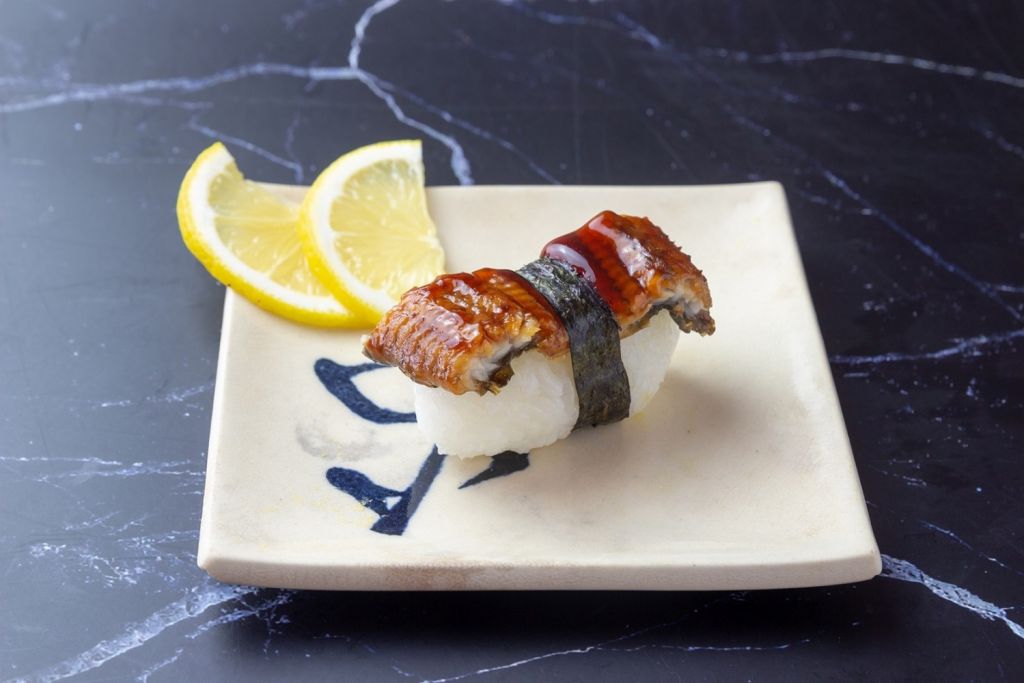Newsletter Signup - Under Article / In Page
"*" indicates required fields
With eels becoming an endangered species and demand for its meat continuing to increase, the Israeli food-tech startup Forsea Foods has raised $5.2 million in a seed round to address the issue.
Forsea Foods Ltd. is the first company to use organoid technology for culturing seafood products. Its aim is to redress the destruction of marine life due to overfishing. Forsea cultivates the seafood, initially eel meat, without harming sea life where demand is high, particularly in Asia and Europe.
The seed round was led by Berlin-based Target Global. Also invested in the round were The Kitchen FoodTech Hub; PeakBridge VC; Zora Ventures; FoodHack, and Milk & Honey Ventures. The new funding will initially go towards growing cultivated eel meat, high in demand for kabayaki and sushi. Target Global’s contribution to this round marks one of its first investments in the food-tech industry.
Preserving fish
Founded a year ago with the support of The Kitchen FoodTech Hub part of The Strauss-Group, Forsea Foods is dedicated to preserving the fish population by creating a viable alternative to wild-caught seafood and leaving the fragile marine ecosystem completely untouched.
Forsea Foods utilizes a non-GMO organoid platform in which the eel meat is grown ex vivo as a three-dimensional tissue structure in the same manner it would grow in a living fish.
This technology bypasses the scaffolding stage and requires fewer bioreactors, a process that is much simpler and more cost-effective than traditional cell culturing. It also dramatically reduces the amount of expensive growth factors required, making the final product more affordable. Iftach Nachman, co-founder of Forsea Foods, developed the organoid technology to solve the bottleneck of the eel meat industry.
Dramatic impact
Shmuel Chafets, executive chairman and founder of Target Global said: “We are eager to take part in Forsea’s quest to create sustainable, better-for-you seafood products that do not disrupt the biodiversity of the oceans.
“Forsea is poised to make a dramatic impact on the seafood ecosystem. Its pillar platform solves a bottleneck in the cultivated meat industry by creating affordable, ethical, cultivated seafood products that can replace vulnerable fish species.”
Forsea Foods will inaugurate its pilot plant during 2023. The plant will allow the company to create a preliminary design for a large-scale alpha production system, and to launch the company’s first products. The start-up will invest the newly raised capital to accelerate research and development (R&D for both growing eel meat and developing the process for other fish species.
Organoid technology
Forsea Foods says it will also improve and expand its core technology to enable organoid growth in large-scale bioreactors, while developing methods to increase production yield and profitability at a lower cost. These include perfecting a continuous feeding strategy and nutritional support. Recently Forsea Foods expanded its R&D team and activities to Rehovot, in the heart of Israel’s FoodTech valley.
“We are very excited to announce the completion of this funding round,” states Roee Nir, CEO and co-founder of Forsea Foods. “Our investors express their trust in our game-changing technology for producing seafood with a minimal footprint on the environment. The patented organoid technology allows us to contribute to a safe and more resilient food system consumers demand.”
3D structure
“Depletion of world fisheries is a major threat to our food security,” adds Amir Zaidman, chief business officer of The Kitchen Hub. “For this reason we teamed up with Nir and the founding team and backed Forsea from its inception at The Kitchen. We are proud to continue our support and to participate in the seed round of Forsea as it continues to attain its goals.”
“We can produce a product identical in flavor, texture, appearance, and nutritional values to real eel,” added Nir. “The organoid platform allows us to design the fish fillet exactly as it grows in the fish, that is, in a 3-dimensional structure, without growing the fat and muscle tissues separately.”
Current trends & innovations in 3D organoids






